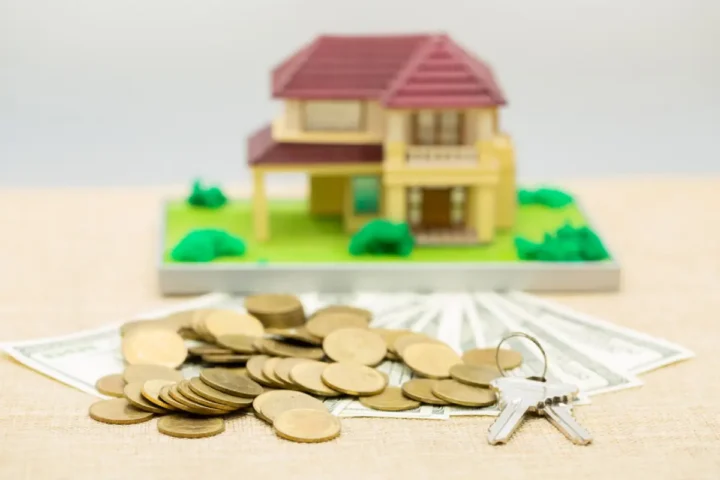How Do Cash Buyers Determine Your Home’s Value?
The typical real estate sale comes bundled with waiting for mortgage approvals, jumping through third-party inspections, and crossing fingers that nothing goes wrong at the eleventh hour. However, a cash home buyer alleviates many of these worries by eliminating the need for loan underwriting and related contingencies.
By making an offer that doesn’t hinge on financing, the process moves faster and comes with less risk of a collapsed deal. This sense of security appeals to sellers under pressure due to new jobs, urgent relocations, or cases when a property needs substantial repairs and wouldn’t qualify for traditional financing.
In recent years, the real estate market has seen noticeable growth in the portion of properties sold for cash. About 30% of all U.S. home sales were completed by cash buyers. As banks tighten lending standards and bidding wars remain common in certain regions, more buyers show up with cash, giving sellers options beyond the slow and sometimes unpredictable traditional route. Understanding the motivations and techniques behind these offers reveals why so many sellers view cash buyers as a compelling alternative.

Key Factors Cash Buyers Consider
- As-Is Sale: Cash buyers are usually ready to purchase the property “as-is.” This means sellers aren’t expected to invest in upgrades or extensive preparation, which can save time and money. This feature removes significant stress from the transaction for owners with inherited homes or properties rented out.
- Comparable Sales: Most cash buyers are grounded in numbers. They’ll compare your property to similar homes (“comps”) recently sold nearby, focusing on actual selling prices instead of listed ones. These comps are a cornerstone of fair market value calculations and help minimize subjectivity.
- Market Trends: The broader real estate market influences what a cash buyer appreciates, which might result in multiple strong cash offers for the same home. In contrast, slower markets can have a tempering effect. Sellers can benefit by staying aware of inventory levels and local demand.
- Investment Goals: Cash investors often analyze your home for its investment potential. They weigh the costs of repairs, the expected resale price, and the average time it takes to flip or rent out similar homes. This ensures their offers can support a future profit after costs and risks are factored in.
- Time To Close: The promise of a speedy closing is more than just a convenience. The certainty and speed allow sellers to avoid property taxes, maintenance bills, and mortgage payments that would accrue during a lengthy sales process. Sometimes, cash buyers provide slightly lower offers to account for this financial benefit and reduced risk.
Inspection and Property Condition
Property condition is a significant part of every cash offer calculation. While traditional buyers might be discouraged by a dated kitchen or peeling paint, cash buyers are laser-focused on issues that could present costly problems, such as foundation repairs, termite damage, or aging roofs. These repairs get factored directly into the offer, often resulting in requests for credits or price adjustments.
However, more minor cosmetic issues typically don’t affect the offer much. As highlighted in recent findings, such as the national real estate forecast, move-in-ready homes in top condition consistently command premium offers, even from cash buyers.
However, working with a cash buyer still provides a path forward and keeps the sale simple for those without the resources or time to invest in updates. Many cash buyers use an inspection checklist that targets expensive repairs and helps them shape an offer quickly.
Analyzing the Local Market
Every real estate market tells a different story, and cash buyers like naples-group.com are skilled at reading macro and micro trends. This analysis starts with reviewing data on recent sales, current listings, average days on market, and inventory levels. In metro areas where housing is in short supply among buyers—including those paying cash—offers can be very close to asking prices or above.
In contrast, rs may offer more conservatively in areas to offset perceived risk. Sellers s in areas with high inventory and declining demandhould follow market updates such as the quarterly reports from the National Association of Realtors, which track key movements in prices, supply, and buyer demand.
These tools help sellers set realistic expectations long before negotiations start. Knowing your market not only empowers your bargaining position but can also validate whether an offer makes sense for your situation.
How Cash Offers Are Calculated
Simple Steps to Math
- Future Sale Potential: Cash buyers start by determining what your property could sell for after repairs and updates are complete, using local comps and market projections.
- Deduct Repairs: A careful budget is made for all work needed to bring the property up to market expectations, including major structural issues and required system upgrades.
- Account for Expenses: All transaction expenses, such as closing costs, property taxes, utilities, insurance, and agent commissions for the eventual resale, are subtracted out next.
- Figure in Profit Margin: Finally, if it is an investor, they add a margin to protect against unforeseen market changes or hidden repair costs. This step rewards the risk and investment of buying with cash.
For instance, if a home would fetch $350,000 after $25,000 in renovations, and holding, closing, and selling costs total $20,000, a realistic offer may land around $305,000 or a bit less. The transparency of this rationale is what makes cash offers appealing to sellers who prioritize certainty or can’t swing needed updates themselves. It demystifies the offer and shows precisely where the numbers come from.
The Role of Quick Closings and Certainty
One of the most substantial advantages for sellers who choose a cash offer is the confidence that comes with a quick, predictable closing. Without mortgages and underwriting delays, many cash transactions can wrap up in as little as a week. This speed is invaluable for buyers facing impending deadlines, such as job relocations, family transitions, or property inheritance.
The certainty also means there’s little risk of a deal collapsing at the last second due to loan denials or last-minute buyer hesitancy. This peace of mind is so valuable that many sellers are willing to accept a slightly lower offer to avoid the stress and uncertainty of a conventional sale.
What Sellers Should Expect
If you’re working with a cash buyer, expect an accelerated and more straightforward experience than selling through traditional channels. There is usually less paperwork, fewer contingencies, and less hassle from endless negotiations about repairs or inspection requests. Still, it’s essential to protect yourself: ask the cash buyer for proof of funds up front, clarify earnest money arrangements, and get all terms in writing.
If you’re unsure of a contract detail, don’t hesitate to ask questions or consult a real estate attorney. Sellers may need to conduct a pre-sale inspection or gather the title and tax bills to anticipate questions and expedite negotiations. Working with a reputable cash buyer can distinguish between a stressful and a streamlined experience.
Common Myths About Cash Buyers
- Myth: Cash buyers always give lowball offers.
- Fact: While offers are sometimes under traditional retail prices, they are grounded in real-cost analysis and designed to reflect repair, market, and holding risks.
- Myth: Only homes in poor shape attract cash buyers.
- Fact: Move-in-ready properties often fetch strong cash offers, particularly in fast-moving neighborhoods, as buyers compete to secure homes without delays.
- Myth: All cash buyers are untrustworthy investors.
- Fact: Many cash buyers are experienced, professional, and transparent. The key is due diligence and verifying credentials before signing any agreement.
Final Thoughts
Selling your home to a cash buyer isn’t just about the fastest transaction or simplest paperwork. It’s also about understanding the reasoning behind the offer and what it delivers in certainty, time, and risk reduction. Cash buyers use a transparent methodology, prioritizing efficiency and clear communication.
As market data shows, sellers who know their market and property condition position themselves to make informed, empowered decisions. Whether you’re aiming for speed or want to avoid surprises, understanding how cash buyers determine home value puts you in control, so your next move can truly fit your goals and timeline.


